Music
Trailers
DailyVideos
India
Pakistan
Afghanistan
Bangladesh
Srilanka
Nepal
Thailand
StockMarket
Business
Technology
Startup
Trending Videos
Coupons
Football
Search
Download App in Playstore
Download App
Best Collections
Technology
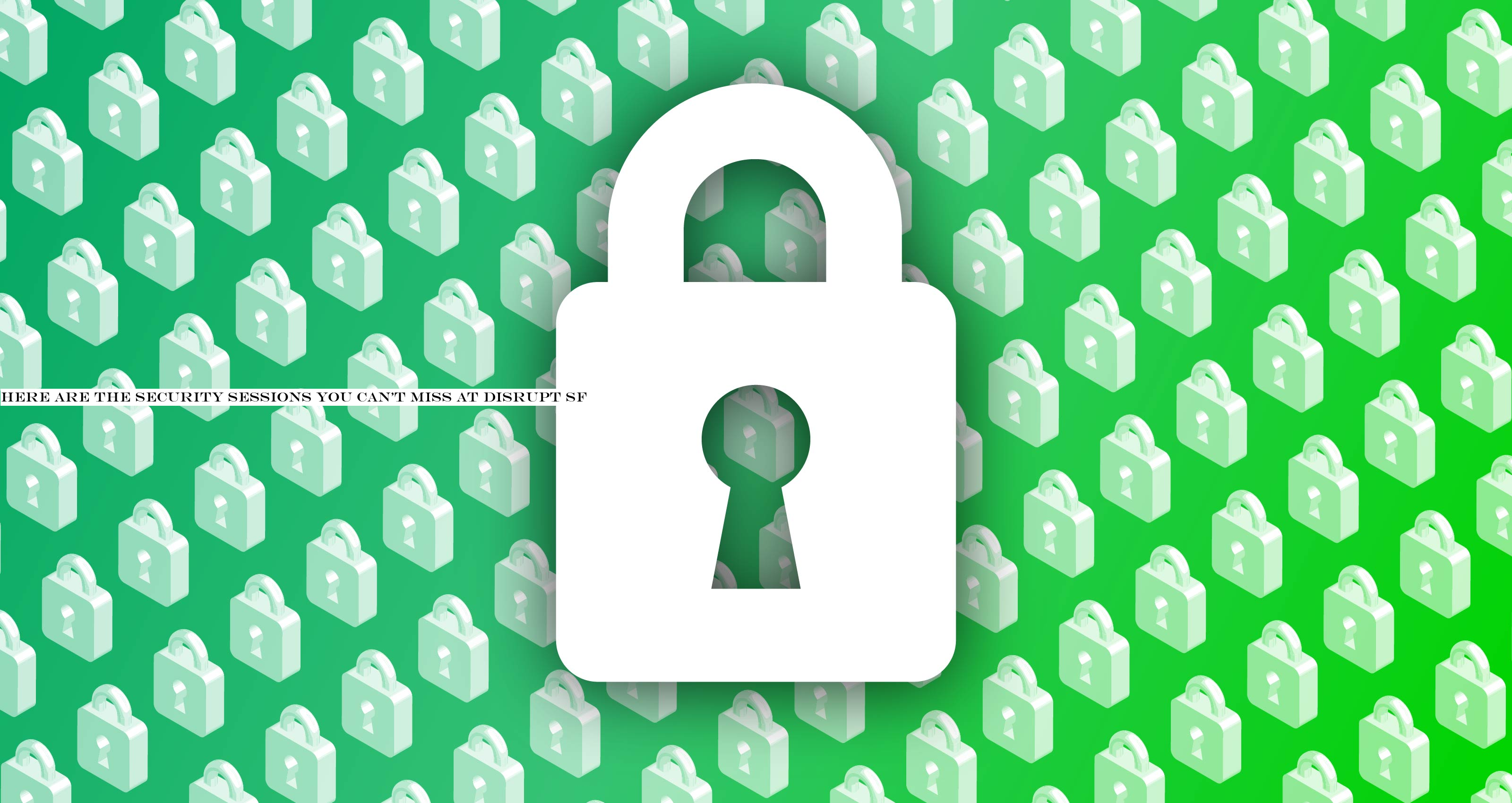
Security is in everything, iteverywhere, and iteveryoneresponsibility. What part are you playing?
At TechCrunch Disrupt SF on October 2-4, we&re proud to have some of the smartest security executives and highest-ranking officials ready to talk shop on stage. Security will be front and center of Disrupt SF with our panels and experts to discuss a range of topics. You can&t afford to miss out.
If you haven&t booked your ticket to Disrupt SF in two weeks, here are three reasons why you should.
On stage we&ll talk to Homeland Security assistant director Jeanette Manfrato understand some of the greatest threats that face the United States today. As one of Homeland Securitymost senior cybersecurity officials, Manfra will discuss election hacking, how to defend against nation state attackers, and what companies can do to be prepared.
We will also have former NSA director Mike Rogers and Team8 founder Nadav Zafrir on stage to dive into the murky world of intelligence. Rogers, a career-long cybersecurity official and former head of the National Security Agency, will discuss his time at NSA and how the landscape of cybersecurity threats has changed, and what he brings to the private sector as a senior advisor to Team8, a cybersecurity think tank and company creation platform. Zafrir, a former Israeli intelligence chief who now heads the think tank, will join Rogers to talk about their most recent venture — security startups.
And, talking of which, how do you build a secure startup without slowing growth? Companies are hungry to launch and grow, but scale often comes with a tradeoff — security, or lack of. We have three leading experts who will join us on the Extra Crunch stage to discuss how to build a secure startup without compromising on scale.
Heather Adkins, Googledirector of security and privacy, will join IOActive chief executive Jennifer Sunshine Steffens and DuoDug Song to talk security. How do you keep your customer data safe? How do you defend against unknown threats? How do you stay ahead of the bad guys?
Whether you&re a security professional, a founder or investor, or a startup decision maker, theresomething for everyone.
Disrupt SF runs October 2 to October 4 at the Moscone Center in San Francisco. Need tickets? Head on over here to pick some up.
- Details
- Category: Technology
Read more: Here are the security sessions you can’t miss at Disrupt SF
Write comment (100 Comments)Itbeen another hard week at MIT. Our campus has been divided by revelations of inappropriate fundraising, coverups, and the harboring of far too many tech geniuses who seemingly put their own interests and careers over the safety of women, among other marginalized groups.
As a chaplain to students and faculty at the Institute, but also as an opinion writer on the ethics of technology who is supposed to be on sabbatical from the chaplaincy to focus on the writing, I&ve been torn all week as to what to say. If you don&t know what a chaplain is, and you would hardly be alone in any ignorance there, it is a position that emphasizes confidentiality and trust. I know there are a lot of people on MITcampus who are scared, sad, and hurting for various reasons, and I wouldn&t want any of them to feel less able to speak with someone like me because I&ve chosen to speak out publicly.
At other times, in the midst of other campus controversies, I&ve personally opted to remain relatively silent, leaning into the part of my job that is, officially, one of quiet service to a university as a whole. I&ve been critical of a lot of big institutions over the years, including much of religion, but also a lot of organized atheism.
But as a chaplain at big educational institutions, I&ve rarely felt comfortable being too critical of those institutions, the universities, which at least in my judgement have more power and influence (not to mention more money, though they don&t really pay it to me) than even the oldest and grandest of churches and temples.
Maybe I was wrong in some of those cases; at other times, maybe I was able to do some good by keeping quiet. I reflect on this out loud not because anyone reading it should particularly care about my situation or my inner conflict. You most likely shouldn&t.
I share my own ambivalence, however, because I know countless executives, administrators, and other kinds of leaders have been through similar thought processes. Itnot my place to speak. If I do speak, maybe they&ll fire me, and then I can&t do anyone any good. Even if they don&t fire me, I&m supposed to be ‘objective;& if I enter the fray, I&ll lose the trust and confidence of half the community.
But then I think about the students and faculty who need support the most. What they need are educators, peers, and administrators who are willing to join them in taking some risk to do what is right.
I was proud, last week, to share the first half of an exclusive interview with an MIT student named Arwa Mboya who brilliantly and bravely spoke out, helping bring about the resignation of one of the worldmost influential tech ethicists, former MIT Media Lab Director Joi Ito. As I said on Twitter, for my money Mboya has been the biggest of the many heroes in this Media Lab scandal.
For her efforts, Mboya was awarded a &Bold Prize,& and celebrating students for their bravery seems unequivocally good. Leaving them alone with their courage, however, by remaining silent in the name of &objectivity,& would be a moral failing.
I&m not sure itmy place to use this space to call on MIT President Rafael Reif to resign for his own role in allowing Jeffrey Epsteindonations to the Institute — a role Reif acknowledged this week at an MIT faculty meeting in which he said, &I understand that I have let you down and damaged your trust in me, and that our actions have injured both the Institutereputation and the fabric of our community.&
Maybe there are ways forward where MIT is able to heal with Reif still at the helm, though personally I have a hard time envisioning them. But at the very least, we must support students.
And by that I mean, people like me need to publicly and visibly support tech students who feel an ethical obligation to call for the resignation of their own universityleader over his publicly acknowledged role in not only tolerating but greenwashing human trafficking and serial pedophilia. Just like the drafters and 60+ signers of this powerful letter from women on MITfaculty have done.
Will Reif resign? Will more information come out that makes his resignation seem even more inevitable? Or will the &independent review& he has put in place exonerate him in some way? Time will tell.
Meanwhile, as MIT sought to distance itself from Jeffrey Epstein and the broader social questions his case raises, this hard week did bring at least one piece of good news: the resignation of Richard Stallman. A MacArthur &Genius& Fellow and major figure in the history of computing, Stallman has long been a stain on the reputation of institutions with which he has affiliated, for troublingly sexist comments and stances.
Richard Stallman of MIT, an Epstein defender, believes that pedophilia is fine if the child is willing. Hold on to that tidbit for a second. https://t.co/RiGvhJW9hR
— Angus Johnston (@studentactivism) September 14, 2019
The Overton Window on someone like Stallman has now shifted, however, once again thanks to outspoken students, most often young women of color. Like Selam Gano, a recent MIT graduate in robotics engineering, who &arguably set Stallmandeparture in motion,& by speaking out last week on Medium. Ganopost, entitled &Remove Richard Stallman and Everyone Else Horrible in Tech,& followed an email Stallman had sent to a Listserv affiliated with MITrenowned CSAIL research laboratory.
I forgot to share. Herethe latest. @selamjie a grateful MIT thanks you for your bravery. https://t.co/SLiBFuGVcN
— Amanuella (አማኑኤላ) (@AmanuellaM) September 18, 2019
&There is no single person that is so deserving of praise their comments deprecating others should be allowed to slide,& Gano wrote. &Particularly when those comments are excuses about rape, assault, and child sex trafficking.
Child.
Sex.
Trafficking.&
Ganodrawn-out emphasis on the nature of the crime in question is entirely appropriate. After all, &human trafficking is the single largest illegal industry in the world,& as the framers of this additional recent petition for resignations of prominent MIT officials made clear. Human trafficking, they wrote, far eclipses even the international drug trade, and continues to inflict incomprehensible suffering on women, children, and families around the world.
In calling for leaders to leave, Gano, like Mboya before her, is not harming MIT or damaging its reputation. To the contrary. Both women have expressed, publicly and privately, a great and ongoing love for the school and what it represents.
In fact, itnot coincidental that both of these whistleblowers have even described MIT as the best place in the world for them educationally, the site of some of their happiest memories and proudest moments. Itthat kind of true pride that leads morally upstanding people to say, &enough.& Because they want and need to continue to be proud. And because they understand that true pride is the opposite of a coverup. It is the opposite of clinging to power.
As Selam Gano wrote in her Medium post, &I know, now, that if prominent technology institutions won&t start firing their problematic men left right and center, we will do nothing. Ever.& Gano, Mboya, and other students and educators I admire are unwilling to allow an extraordinary institution like MIT to do nothing, or to do so little of consequence that it would essentially be nothing.
These people are, to the extent that a large research university is like a nation-state, true patriots. It might be scary to join them and walk alongside them publicly. Taking a stand might threaten our privilege and expose us to risk. Thatwhat being brave is all about.
Your move, President Reif and MIT.
&Okay, this girl was asked to change her religion at gunpoint and she didn&t do it,& MIT Media Lab student Arwa Mboya told me at the end of Part One of my interview with her, about a young woman she&d read about in a book called Beneath The Tamarind Tree. The book, by former CNN anchor Isha Sesay, is a skillful account of the 276 girls abducted from Chibok in Nigeria, which launched the &Bring Back Our Girls& campaign.
Mboyaoutspokenness in the face of the Jeffrey (no fucking relation, thank you!) Epstein scandal, inspired in part by her reading of Sesay, was among the bravest demonstrations I&ve seen by a student in 15 years as a university chaplain.
Previously, Mboya and I discussed her decision process for taking a leap which earned her a &Bold Prize& of, to this date, over $13,000 of crowd-funded money. But even more importantly, we discussed the life experiences which inspired Mboyacourage in the first place — namely her love and radical hopefulness for the youth of her native Africa, and her passion to inspire those young people with the best tech has to offer.
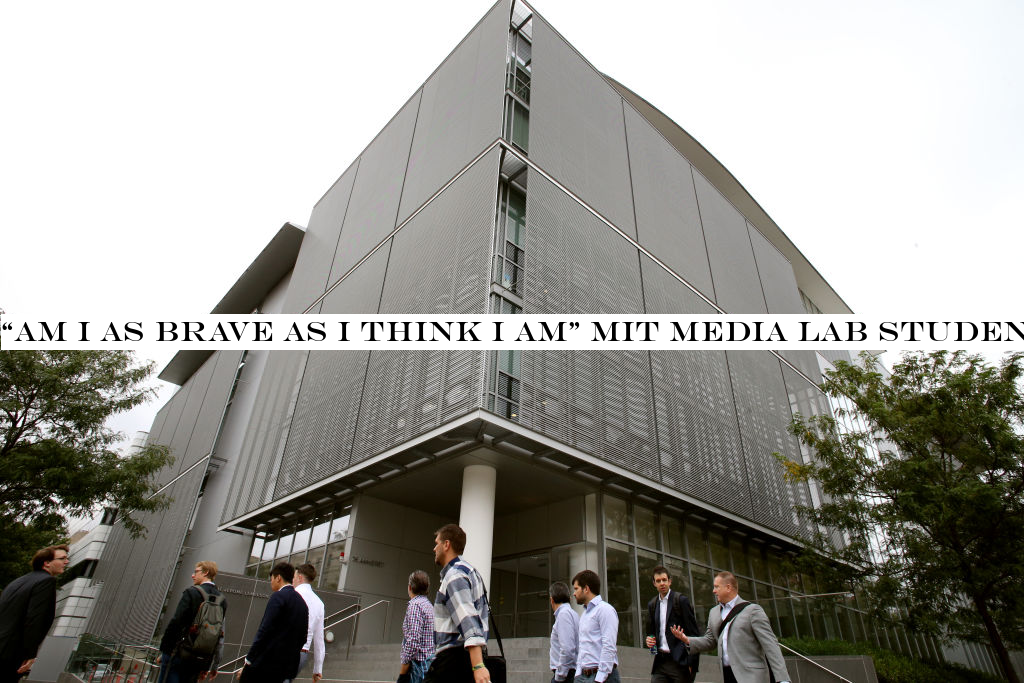
(Photo by Craig F. Walker/The Boston Globe via Getty Images)
In this second and final portion of my conversation with Mboya, we pick up where Part One left off, discussing human trafficking in Africa and in the United States, and how the two phenomena are more closely related than many might imagine. We then get into reading (or not) the comments on her now-famous op-ed calling on Joi Ito to resign; her reaction to receiving the crowd-funded &Bold Prize;& her feelings toward Joi Ito today; and how radical imagination can breakthrough systematic oppression, in Africa and beyond.
&She believed that much,& Arwa said to me about the young woman from Chibok, &that even at gunpoint, even with a risk of rape, with a risk of death, with the risk of all the other nasty things, she stood up for what she believed in.&
Itnot hard to see how that kind of perspective and wisdom might have enabled Mboya to do something exceptional.
Arwa Mboya: The activist who started the Bring Back Our Girls Campaign hounded the government down & and the Nigerian government is scary. I was like, &Okay, these people can do that. I have power to just speak out. Am I really what I think I am? Am I as strong, as brave as I [think I] am?&
- Details
- Category: Technology
On Sundays in October, Tinder is launching an &interactive adventure& in its dating app called &Swipe Night& that will present a narrative where users make a series of choices in order to proceed. This sort of choose-your-own-adventure format has been more recently popularized by Netflix and others as a new way to engage with digital media. In Tindercase, its larger goal may not a dramatic entry into scripted, streaming video, as has been reported, but rather a creative way to juice some lagging user engagement metrics.
For example, based on analysis of Android data in the U.S. from SimilarWeb, Tindersessions per user, meaning the number of times the average user opens the app per day, have declined. From the period of January & August 2018 to the same period in 2019 (January & August 2019), sessions declined 10.8%, from 4.5 to 4.1.
The open rate, meaning the percentage of the Tinder install base that opens the app on a daily basis, also declined 5.9% during this time, going from 28% to 22.1%.
These sort of metrics are hidden behind what would otherwise appear to be steady growth. Tinderdaily active users, for example, grew 3.1% year-over-year from 1.114 million to 1.149 million. And its install penetration on Android devices grew by 1%, the firm found. (See below).
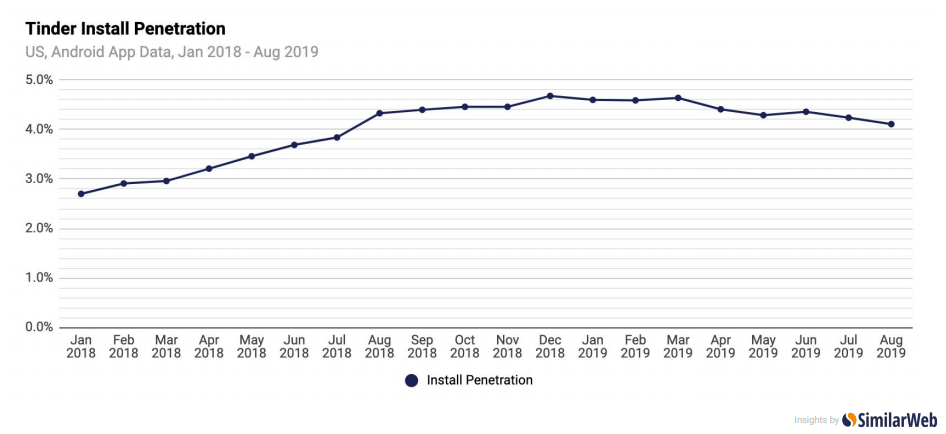
Drops in user engagement are worth tracking, given the potential revenue impact.
App store intelligence firm Sensor Tower found Tinder experienced its first-ever quarter-over-quarter decline in combined revenue from both the App Store and Google Play in Q2 2019.
Spending was down 8.8% from $260 million in Q1 to $237 million in Q2, the firm says. This was largely before Tinder shifted in-app spending out of Google Play, which was in late Q2 to early Q3. Tinder revenue was still solidly up 46% year-over-year, the company itself reported in Q2, due to things like pricing changes, product optimizations, better &Tinder Gold& merchandising and more.
There are many reasons as to why users could be less engaged with Tinderapp. Maybe they&re just not having as much fun — something &Swipe Night& could help to address. Sensor Tower also noted that negative sentiment in Tinderuser ratings on the U.S. App Store was at 79% last quarter, up from 68% in Q2 2018. Thata number you don&t want to see climbing.
Of course, all these figures are estimates from third-parties, not directly reported — so take them with the proverbial grain of salt. But they help to paint a picture as to why Tinder may want to try some weird, experimental &mini-series&-styled event like this.
It wouldn&t be the first gimmick that Tinder used to boost engagement, either. It also recently launched engagement boosters like Spring Break mode and Festival mode, for example. But this would be the most expensive to produce and far more demanding, from a technical standpoint.

In &Swipe Night,& Tinder users will participate by launching the app on Sundays in October, anytime from 6 PM to midnight. The 5-minute story will follow a group of friends in an &apocalyptic adventure& where users will face both moral dilemmas and practical choices.
You&ll have 7 seconds to make a decision and proceed with the narrative, Tinder says. These decisions will then be added to your user profile, so people can see what decisions others made at those same points. You&ll make your choice using the swipe mechanism, hence the series& name.
Every Sunday, a new part of the series will arrive. Tinder shot over 2 hours worth of video for the effort, but you&ll only see the portions relevant to your own choices.
The series stars Angela Wong Carbone (&Chinatown Horror Story&), Jordan Christian Hearn (&Inherent Vice&), and Shea Gabor, and was directed by Karena Evans, a music director used by Drake. Writers include Nicole Delaney (Netflix&Big Mouth&) and Brandon Zuck (HBO&Insecure&).
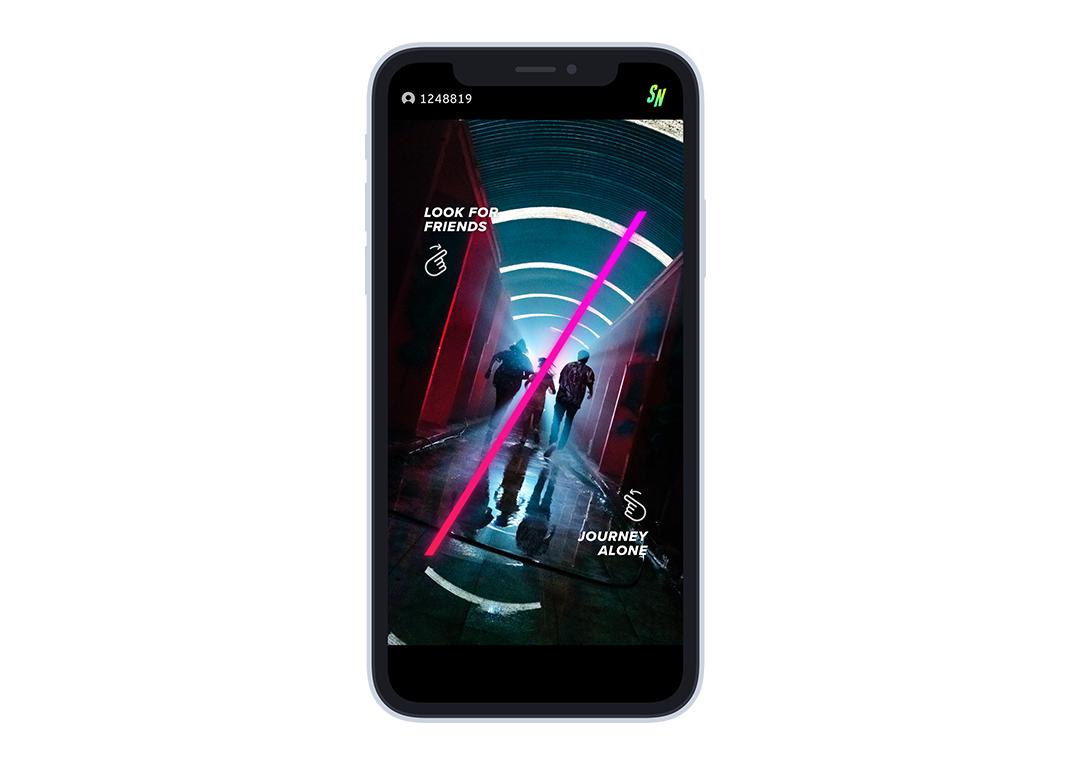
Tinder touts the event as a new way to match users and encourage conversations.
&More than half of Tinder members are Gen Z, and we want to meet the needs of our ever-evolving community. We know Gen Z speaks in content, so we intentionally built an experience that is native to how they interact,& said Ravi Mehta, TinderChief Product Officer. &Dating is all about connection and conversation, and Swipe Night felt like a way to take that to the next level. Our hope is that it will encourage new, organic conversations based on a shared content experience,& he said.
How someone chooses to play through a game doesn&t necessarily translate into some sort of criteria as to whether they&d be a good match, however. Which is why itconcerning that Tinder plans to feed this data to its algorithm, according to Variety.
At best, a series like this could give you something to talk about — but itprobably not as much fun as chatting about a shared interest in a popular TV show or movie.
Variety also said the company is considering whether to air the series on another streaming platform in the future.
Tinder declined to say if it plans to launch more of these experiences over time.
Despite the user engagement drop, which crazy stunts like &Swipe Night& could quickly — if temporarily — correct, the dating app doesn&t have much to worry about at this time. Tinder still accounts for the majority of spending (59%) in the top 10 dating apps globally as of last quarter, Sensor Tower noted. This has not changed significantly from Q2 2018 when Tinder accounted for 60% of spending in the top 10 dating apps, it said.
- Details
- Category: Technology
Read more: Tinder’s interactive series ‘Swipe Night’ could bring a needed boost to user engagement
Write comment (94 Comments)In November 2020, America will go to the polls to vote in perhaps the most consequential election in a generation. The winner will lead the country amid great social, economic and ecological unrest. The 2020 election will be a referendum on both the current White House and the direction of the country at large.
Nearly 20 years into the young century, technology has become a pervasive element in all of our lives, and will continue to only grow more important. Whoever takes the oath of office in January 2021 will have to answer some difficult questions, ranging from an impending climate disaster to concerns about job loss at the hands of robotics and automation.
Many of these questions are overlooked in day to day coverage of candidates and during debates. To better address the issues, TechCrunch staff has compiled a 10-part questionnaire across a wide range of tech-centric topics. The questions have been sent to national candidates, regardless of party. We will be publishing the answers as we receive them. Candidates are not required to answer all 10 in order for us to publish, but we will be noting which answers have been left blank.
Previously: John Delaney
This time out, we&re speaking to Tom Steyer. The California-based billionaire hedge fund manager spent time at Morgan Stanley and Goldman Sachs before founding and heading up Farallon Capital Management. The investment firm managed $21 billion in investments with Steyer at the helm. In recent years, he has become an outspoken opponent of climate change, giving a speech at the 2012 Democratic National Convention. In 2017, he rose to national political prominence starring in a self-funded $10 million TV ad campaign calling for the Donald Trumpimpeachment.
1. Which initiatives will you prioritize to limit humankindimpact on climate and avoid potential climate catastrophe?
Climate change is a crisis as big and urgent as any other that this country and our planet has faced. It demands our immediate attention on all levels of government and society. Our country needs a strong president who will make this a top priority. On my first day in office, I will declare the climate crisis a national emergency and use the emergency powers of the presidency to implement a plan to build a safer, more sustainable world, with or without Congress. This is truly a global crisis, and it is long past time for the United States to take the lead in solving it. I have been on the ground working with local groups to take on polluters and save the planet. One campaign I successfully led was the No on Prop 23: a coalition that defeated a ballot initiative sponsored by out of state oil interests that would have rolled back Californianation-leading climate laws.
2. What is your plan to increase black and Latinx startup founders& access to funding?
Finance and banking were built around a pretty basic idea — some people have money, while others need it to buy homes, build a business and improve their lives. Moving that money around efficiently was the key to success. The free flow of capital fuels the private sector. But not everyone has equal access to that capital, particularly for the innovative new products that could redefine society. In particular, we know that women, black and Latinx founders have been held back by racists and misogynists and do not have the same access to funding that their white, male counterparts enjoy.
So herewhat I have done: my wife and I created Beneficial State Bank as an alternative to the big financial institutions that have treated customers, communities and the planet so badly and that have left so many Americans out of shared prosperity. The profits from the bank don&t go to line our pockets, but are reinvested into the community and used to promote the public good. We now have 17 local branches throughout California, Oregon and Washington, which have been used to build affordable homes for low-income families; create clean, renewable energy; provide spaces for art; educate our youth; help nonprofit organizations and support minority businesses and businesses owned by workers. As president, I will apply this approach to government programs supporting entrepreneurship to ensure that the best ideas have the chance to succeed, no matter the sex, race or creed of the founder. I will also restore the integrity of the Consumer Financial Protection Bureau to ensure that financial institutions and others are putting the interests of consumers and borrowers first.
3. Why do you think low-income students are underrepresented in STEM fields and how do you think the government can help fix that problem?
Science, technology, engineering and math — and I would add the arts, STEAM — are the fields at the core of our innovation economy. Yet so far, low-income students have been left out. We have to tackle this from cradle to career, but there are a few simple things we can do to get started. Our campaign has proposed The 5 Rights, and one of these is the right to education. This includes a strong math foundation, a fundamental need for kids wanting to progress in STEM/STEAM fields. It also includes resourcing schools in all ZIP codes to offer hands-on learning, like place-based environmental education, and to teach new life skills like coding. For kids who are already starting out behind, we are going to have to devote the necessary resources to get them up to speed. Once they graduate, we also want the door to college to be open for any student who dreams of building a better future for themselves. Thatwhy I have been working to reduce student debt, ensure that kids are properly nourished at school and have other social services available to them, making it possible for students from all family backgrounds to afford quality higher education.
4. Do you plan on backing and rolling out paper-only ballots or paper-verified election machines? With many stakeholders in the private sector and the government, how do you aim to coordinate and achieve that?
One person, one vote is the principle underpinning our system of government. As we have seen, the very machines where we cast our votes are under attack, and states need help to secure the integrity of our elections. My administration will work closely with all 50 states to implement paper ballots and risk-based auditing to secure our election systems from fraud and malicious attack.
5. What, if any, federal regulation should be enacted for autonomous vehicles?
My hometown is where these cars are first hitting the roads and from that experience, we know that autonomous vehicles are well on their way, but aren&t quite ready for mainstream. As this new technology develops, we will need to update our federal regulations to ensure the safety of the American people.
6. How do you plan to achieve and maintain U.S. superiority in space, both in government programs and private industry?
Space has captured our imaginations as the next frontier, a place of striving, exploration and excellence, and is also the sphere where the infrastructure of our future is being built in the satellites that now connect people around the planet almost seamlessly. Space, like any domain in which we compete with adversaries and collaborate with allies, demands our attention and a commitment to research and development so we stay a step ahead. Our security interests are always a top priority — but the best way to ensure our safety is to make sure the American people are writing the rules for the defense industry, not lobbyists and corporate interests. I&d ensure that the U.S. Air Force is equipped to handle the risks while making sure every branch and entity involved in space has a centralized hub for communication and action. And we should continue to look at American-led international cooperation — including public and private sector collaboration — in space as a perfect example of soft power, which we should work to maintain and expand. Finally, we should ensure that Americaspace program, NASA, is properly resourced.
7. Increased capital in startups founded by American entrepreneurs is a net positive, but should the U.S. allow its businesses to be part-owned by foreign governments, particularly the government of Saudi Arabia?
As president, I will commit to protecting and fostering American interests, both at home and abroad. And that is why I will support investments in our businesses from sources outside of the U.S. as long as the ownership does not risk our national security and those countries — and companies from those countries — obey and respect our laws from intellectual property to labor and environmental standards. We can only advance our interests if our values are respected.
8. Will U.S.-China technology decoupling harm or benefit U.S. innovation and why?
Like it or not, we are going to have to engage with China both economically and politically. Itimpossible for us to completely divorce these relationships. The real challenge facing our country is how we promote and protect American economic and national security interests. I believe we should stand up strongly to protect the interests of American intellectual property and punish those that don&t obey the laws. We are also going to have to protect American consumers and workers, ensure our cybersecurity and work with China to address pressing global issues like the climate crisis and regional security. The devil is in the details of how we compete with China, and when we engage with them as a strategic partner.
9. How large a threat does automation represent to American jobs? Do you have a plan to help train low-skilled workers and otherwise offset job loss?
From the impacts of Climate Change to the threat of automation, working people have gotten the short end of the stick for the past 40 years. As an investor, I know that if we invest in our people and the technologies needed to save our planet, we can give workers the skills they need for the new economy. These investments need to be done now, not when a million truck drivers lose their jobs. My Justice Centered Climate Plan includes investments in Civilian Climate Corps, which will create one million jobs over 10 years.
10. What steps will you take to restore net neutrality and assure internet users that their traffic and data are safe from manipulation by broadband providers?
The Trump administrationdecision to rescind federal net neutrality rules put the internet into the hands of powerful corporations without protecting consumers. Internet service providers should not be able to charge websites to reach their subscribers. I would reinstate the net neutrality rules written during the Obama administration. In California, I was proud to help pass SB 822, the net neutrality bill that was signed into law — it not only restored the Obama-era standards but went steps further to advance the ball in this policy area.

- Details
- Category: Technology
Read more: Ten questions for 2020 presidential candidate Tom Steyer
Write comment (99 Comments)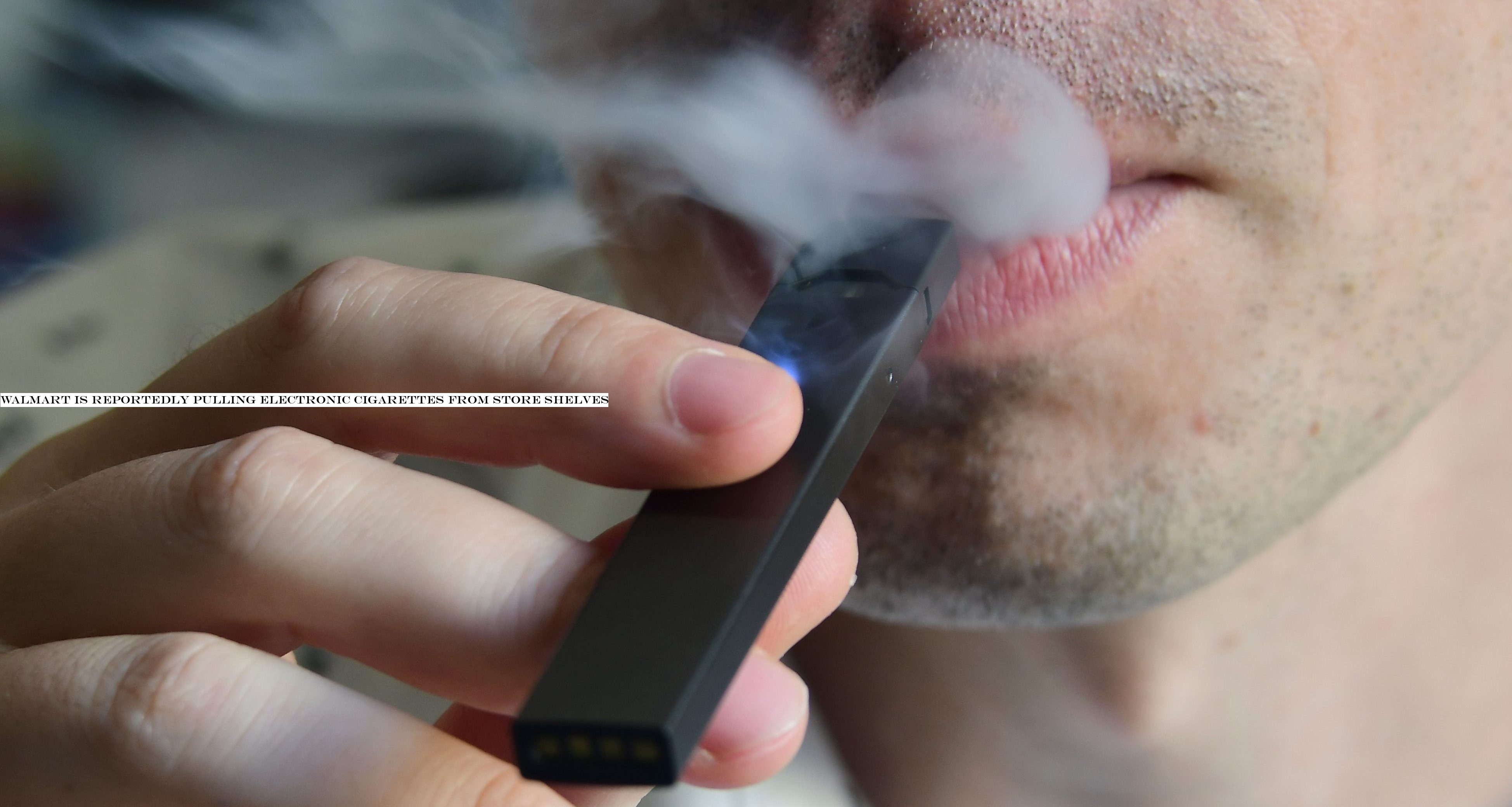
Walmart is planning to pull electronic cigarettes from stores, according to a report by CNBC citing internal company documents.
The move comes as federal regulators are putting mounting pressure on the industry in the face of illnesses that have swept across the country and have been tied to vaping (although the culprit seems to be grey-market products used for THC consumption — rather than tobacco).
However, regulators and private sector health advocates are both alarmed by the dramatic increase in teen vaping rates, and have made moves to ban flavored e-cigarettes. Some countries where smoking is rampant are taking a preliminary step of banning electronic cigarettes altogether.
&Given the growing federal, state and local regulatory complexity and uncertainty regarding e-cigarettes, we plan to discontinue the sale of electronic nicotine delivery products at all Walmart and SamClub U.S. locations,& the company said in a memo, according to CNBC reporting.
Earlier this month the philanthropic organization affiliated with billionaire former mayor Mike Bloomberg said that it would commit $160 million to get kids to stop vaping. Just a day later, the White House said that it would take steps to ban the sale of flavored e-cigarette cartridges.
Meanwhile, the health officials are scrambling to find a cause for the vaping-related lung illness that has sickened at least 530 people in the U.S., according to new reports. So far, seven people have died from the illness, according to a statement yesterday from the Centers for Disease Control and Prevention, and no single substance or product has been connected to the cases, yet.
Walmart has already taken steps to limit teens& access to tobacco products. The company raised the buying age for tobacco goods to 21 earlier this year. It was a response to what regulators have called an &epidemic& of teen vaping with at least 25 percent of students claiming to use e-cigarettes.
This all spells bad news for Juul, the leading e-cigarette supplier, which raised $12.8 billion from the tobacco giant, Altria Group in a December 2018 investment.
As the dominant e-cigarette brand, with something like a 70% market share, the company has become the focus of regulatory scrutiny. Earlier this month, the FDA threatened the company with regulatory action as a result of its marketing practices.
So far, Juul has said it will comply with all regulations imposed by the government. When the latest suggestion of a federal ban on flavored products went out, the company said, &We strongly agree with the need for aggressive category-wide action on flavored products. We will fully comply with the final FDA policy when effective.&
Walmart did not respond to a request for comment at the time of publication.
- Details
- Category: Technology
Read more: Walmart is reportedly pulling electronic cigarettes from store shelves
Write comment (94 Comments)
Amazon today is introducing a new perk for Prime members: free mobile game content. The company, which already offers Twitch Prime benefits through its subsidiary, will now give its Prime members various in-game items for PUBG Mobile, the popular battle royale title from Tencent.
The items launching today include an exclusive Infiltrator Mask, Infiltrator Jacket, Infiltrator Pants, and Infiltrator Shoes to complete a Prime-exclusive set, plus the brand-new Blood Oath & Karabiner 98K and Black Magma Parachute.
These exclusive game items aren&t just a one-off as part of a special deal between the retailer and Tencent, however.
Amazon says it will roll out new mobile gaming content on an ongoing basis, going forward, as part of the Prime membership program.
Upcoming partners will include the likes of EA, Moonton, Netmarble, Wargaming Mobile, and others, Amazon tells us.
&Now, no matter what platform you play on—whether console, PC, or mobile—there are Prime game benefits for you,& said Ethan Evans, VP, Twitch Prime, in a statement. &We&re starting with exclusive content for PUBG Mobile, one of the biggest mobile games in the world, and in the coming months, we&ll roll out benefits for some of the most popular mobile games across many favorite genres.&
AmazonTwitch already offers a Prime benefit called Twitch Prime which offers a range of perks, like bonuses like channel subscriptions, access to select games and in-game loot, exclusive emoticons, Prime chat badges and more. And as of yesterday, it now includes the option to share select Twitch Prime loot with other non-Prime members on Twitch. However, its focus is more on PC and console gaming, not mobile.
This isn&t the first time Amazon has pitched gaming perks to its Prime members. Several years ago, it ran a program called &Underground Actually Free& which offered customers free versions of Android apps that would typically cost money. That program, however, was more about luring Prime members to AmazonFire tablets. It shut down in 2017.
Todaymobile gaming perks instead seem to be just a better way for Amazon to leverage the relationships Twitch already has with PC and console game makers who have cross-platform titles that extend to mobile.
To claim the new perks, Prime members can visit www.amazon.com/pubgm.
- Details
- Category: Technology
Read more: Amazon Prime adds free mobile game content to its perks, starting with PUBG Mobile
Write comment (94 Comments)Page 834 of 5614

 5
5





